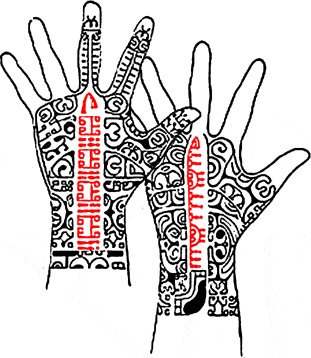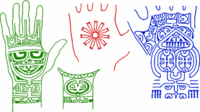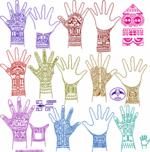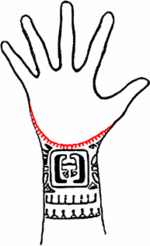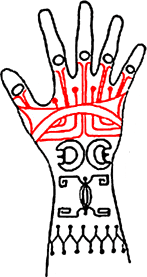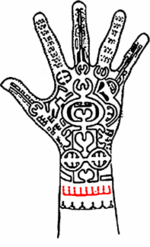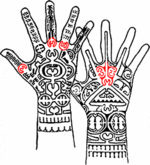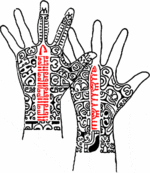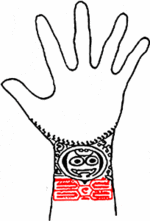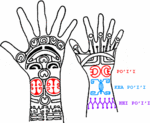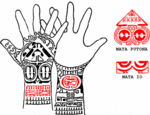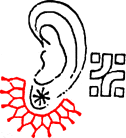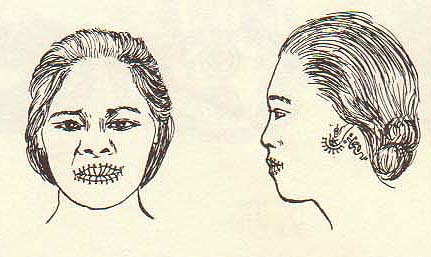Koniho
The Marquesas Islands are an island group in French Polynesia. The islands are approximately 1,000 miles (1,600 km) northeast of Tahiti, and were first settled almost 2000 years ago by the Polynesians.
The islands deserve a mention here as the Marquesan tattooing tradition has had a great influence on today's artists.
Contents |
Marquesan Tattoo Tradition
Boys received their first tattoos in their teens in a ritual setting, and by old age often had tattoos all over their bodies. Women were also tattooed, but nowhere near as extensively as the men.
The designs share many symbolic motifs, but were never copied entirely; every individual's tattoos were different and signified his position in the family.
The sailors on board the ships of Captain James Cook and other explorers from the West brought tattooing back with them, influenced by the designs they had seen on the inhabitants of these islands. These early tattoos, on the bodies of sailors, began the reintroduction of tattooing to the West.
While tattooing is still performed on the Marquesas Islands, the images no longer carry their former significance, and are generally done with a tattoo machine rather than by the traditional method.
Hand Tattoos
Hand tattooing is an important part of Marquesan tattooing, containing both specific iconography and individualized application. While some designs are male or female oriented, there is some interchange between the two.
Marquesan Motifs
The following are a few examples on hands of Marquesan tattoo motifs:
Ear Tattooing
Tattooing of the ear (puaina) was usually, but certainly not always, limited to women.
Other Tattoo Traditions
- Shoulders were commonly tattooed in Marquesan culture. This particular one is a band across the arm, just below the fall of the shoulder, on a woman of Tai-Pi Vai, Nuku Hiva.
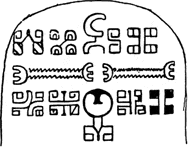
- Traditionally some Marquesan women tatttoed their lips, also called koniho.
